MercoPress. South Atlantic News Agency
Tag: nuclear plant
-
Sunday, April 16th 2023 - 12:49 UTC
Nuclear energy era comes to an end in Germany
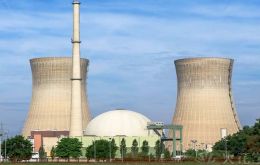
The era of nuclear reactors came to an end in Germany Saturday after the three last such plants were shut down as the country enters a new energy chapter, facing the challenge of doing without fossil fuels while at the same time managing the gas crisis triggered by the war in Ukraine.
-
Tuesday, May 4th 2021 - 23:26 UTC
Russia plans major presence in Argentina with two nuclear plants plus military equipment

Russia's Ambassador to Buenos Aires Dmitry Feoktistov has confirmed his country's intention to build two nuclear power plants in Argentina and press sources at the Casa Rosada presidential palace have not denied it, although the project is yet to be officially endorsed by the administration of President Alberto Fernández.
-
Friday, November 15th 2019 - 09:45 UTC
Germany and Brazil renew nuclear cooperation agreement; third nuclear plant to be built by 2026
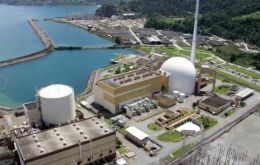
Germany's parliament, the Bundestag, on Thursday ignored pleas from the Green party to scrap a nuclear agreement with Brazil. “Our cooperation in this area has worked well for decades,” Parliamentary State Secretary for the Environment Rita Schwarzelühr-Sutter of the center-left Social Democratic Party (SPD) said. “There are currently no plans to cancel the agreement.”
-
Tuesday, November 17th 2015 - 08:54 UTC
Two Chinese nuclear plants for Argentina in a 15bn dollars deal

Argentina signed two nuclear power plant construction deals with China on Sunday worth around US$15 billion, which would add 1,750 megawatts to the energy already produced by the country's three nuclear power plants.
-
Thursday, August 25th 2011 - 06:08 UTC
Canada to overhaul and expand Argentine nuclear power plant
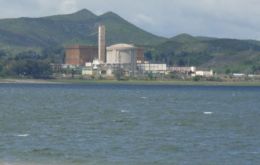
Argentina signed contracts worth 444 million dollars on Wednesday with a subsidiary of SNC-Lavalin Group, Canada's top engineering firm, to extend the shelf-life of its Embalse nuclear plant.
-
Tuesday, May 31st 2011 - 08:18 UTC
Germany plans to shut all nuclear reactors by 2022 and double renewable energy to 35%

Germany plans to shut all nuclear reactors by 2022, Chancellor Angela Merkel's ruling coalition announced Monday, in a policy reversal drawn up in a rush after the Fukushima disaster in Japan.
-
Wednesday, March 16th 2011 - 01:23 UTC
State elections behind Merkel’s decision to halt 7 of Germany’s 17 nuclear reactors
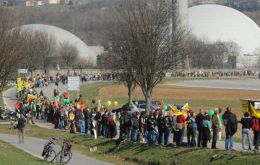
German Chancellor Angela Merkel is backtracking on nuclear power as the atomic emergency in Japan becomes an issue in state-election campaigns. Merkel’s decision to halt seven of Germany’s 17 reactors includes two in Baden-Wuerttemberg, where her party is battling to retain its 59-year-hold on the state in a March 27 vote.
-
Tuesday, March 15th 2011 - 07:58 UTC
Japanese officials admit radiation levels at nuclear plant are eight times higher
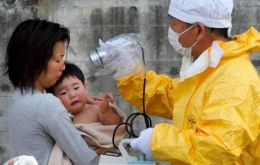
Explosions at a Japanese quake-stricken nuclear plant have led to radiation levels that can affect human health, a senior Japanese official has said. Prime Minister Naoto Kan has urged those living within 30km of the plant to stay indoors.
-
Monday, March 14th 2011 - 07:05 UTC
Second explosion at nuclear plant damaged by Japan’s earthquake
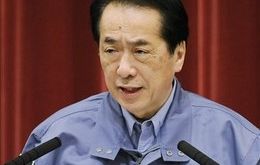
A second explosion has hit the nuclear plant in Japan that was damaged in Friday's earthquake, but officials said it had resisted the blast. TV footage showed smoke rising from Fukushima plant's reactor 3, a day after an explosion hit reactor 1.
